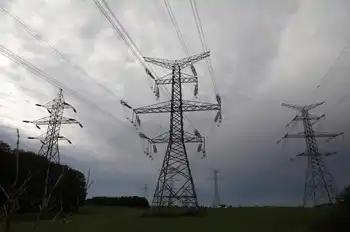China pushes 750-kilovolt grid to promote nationwide connection
Liu said the uneven distribution and consumption of energy in China means that the optimal configuration of resources over long distances will be the fundamental way to solve problems in coal, power, oil supply and transportation services, and to ensure the stability of the nation's energy services. SGCC will build a national grid with an ultra-high-voltage grid at its core, leading to nationwide connection of the power grid.
The northwestern region of China, with rich reserves of energy resources and a large potential for development, will be an important energy-exporting region in the future. To transmit wind power, thermal power and hydroelectric power, a solid grid is essential.
The 750-kV transmission grid at the source is the expressway to transmit large quantities of power from northwestern China. SGCC has reached a common understanding with the five provinces in northwestern China regarding this issue, Liu said. During the 11th Five-Year Plan (2006-10), SGCC will accelerate the construction of the 750-kV grid in northwestern China, create extra high-voltage DC transmission and create a DC grid-connection between Binchang in the Shaanxi Province, Jiayuguan in the Gansu Province, and Hami and Zhundong in the Xinjiang Region.
Tibet and the Xinjiang Grid will be connected to the main grid in northwestern China. During the 12th Five-Year Plan (2011-15), power exports from northwestern China will be more than 50 million kilowatts.
Related News

Can Europe's atomic reactors bridge the gap to an emissions-free future?
PARIS - Shaken by the loss of Russian natural gas since the invasion of Ukraine, European countries are questioning whether they can extend the lives of their ageing nuclear reactors to maintain the supply of affordable, carbon-free electricity — but national regulators, companies and governments disagree on how long the atomic plants can be safely kept running.
Europe avoided large-scale blackouts last winter despite losing its largest supplier of natural gas, but industry is still grappling with high electricity prices and concerns about supply.
Given warnings from the International Energy Agency that the coming winters will be particularly at risk from a…





